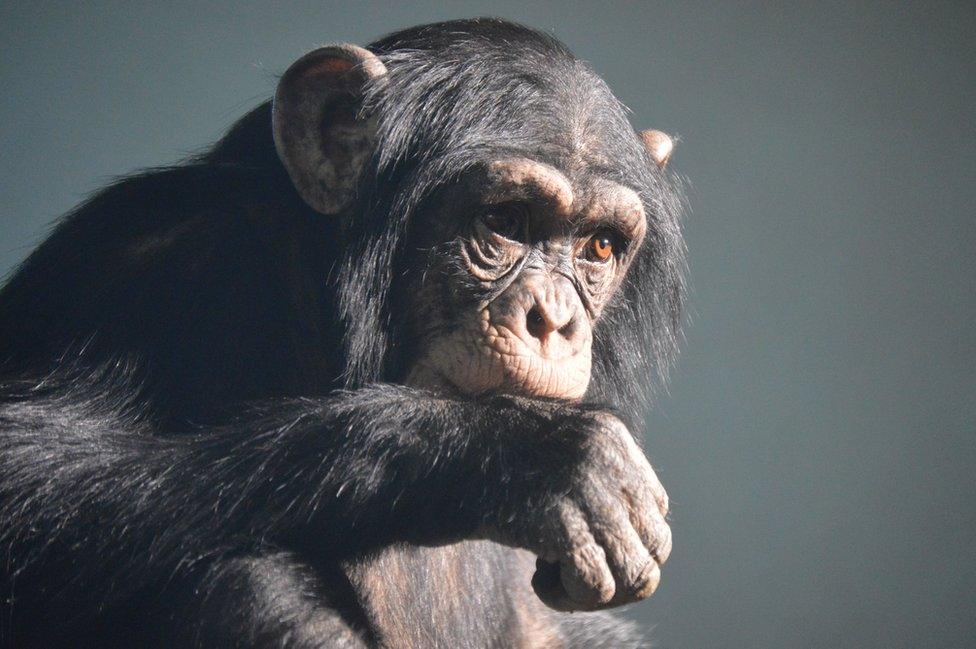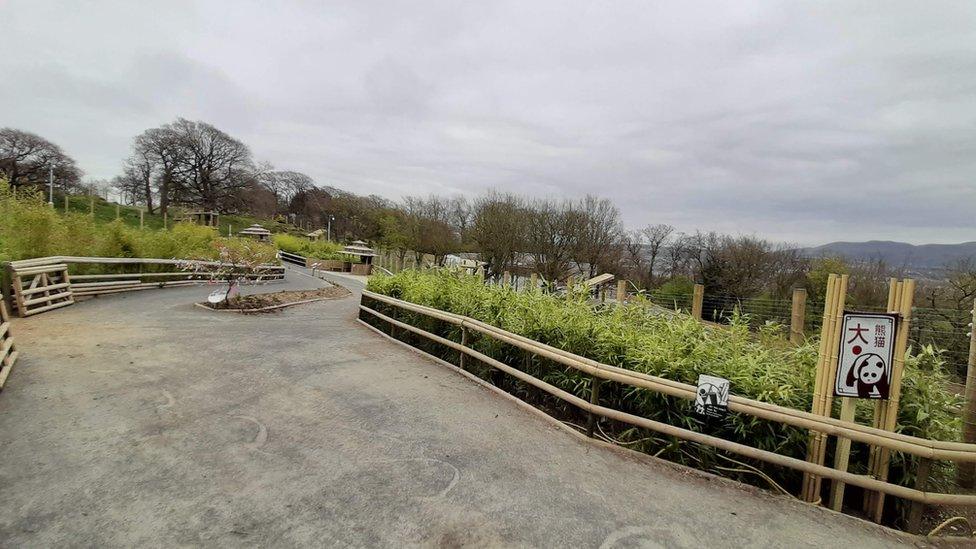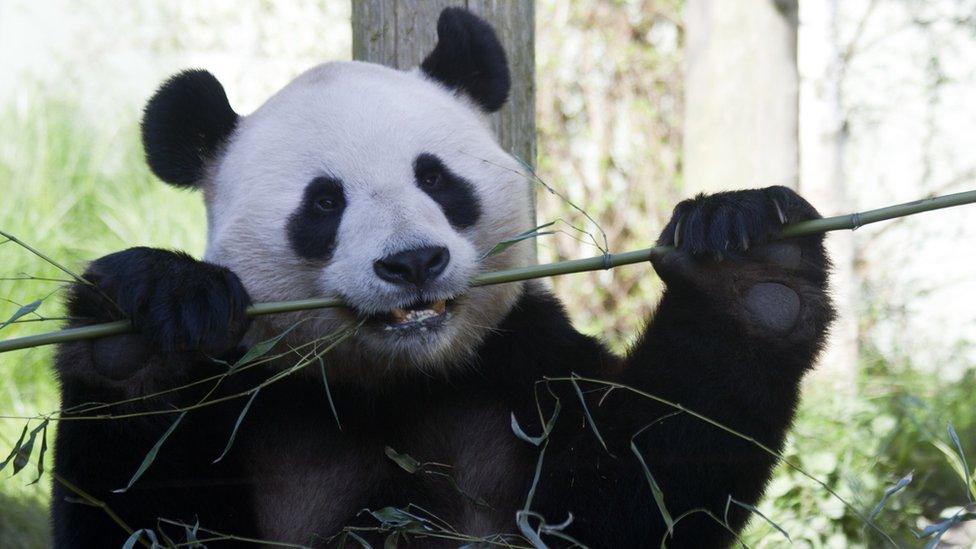Coronavirus: How lockdown is affecting Scotland's zoo animals
- Published

Edinburgh Zoo says its chimpanzees have noticed the lack of crowds
Some animals at Edinburgh Zoo are aware of the dramatic reduction in human activity, according to their keepers.
The zoo, like Scotland's other animal attractions, is closed due to the lockdown.
Staffing numbers have also been reduced, with only essential staff now working at the zoo.
Edinburgh Zoo said its chimpanzees were among those to have noticed the change - although the majority of its animals do not recognise much difference.
Darren McGarry, head of living collections, said staff had sought to maintain the routines its different species were accustomed to.
"Some of our animals have noticed the lack of visitors but for most, it's just a normal day," he said.
"Our chimpanzee troop have been spotted coming up to their windows looking out for visitors and our penguins haven't been able to take part in their penguin parade."

The paths around the zoo are deserted of visitors
McGarry added: "On the whole though, our animal routines haven't changed much, we're working hard to keep this time as normal as possible for them.
"This means they're getting fed and cleaned around the same time as they usually would have, and are getting extra treats to play with and investigate as they would if we were open to the public."
The keepers are always careful around their charges, but coronavirus means they are taking even more precautions now.
'Susceptible to flu'
Lucy Starbuck, who looks after the chimpanzees, said: "We wear gloves when we handle the food but we have started wearing face masks all the time.
"One of the things that could potentially happen is we could potentially pass coronavirus on to the chimps.
"As far as I know there are no like known cases of chimps catching the virus but they are susceptible to the flu so we just don't want to take that chance."
The monthly food bill at Edinburgh Zoo, which is run by the Royal Zoological Society of Scotland, is about £55,000.

The zoo's two pandas eat up to 40lbs of bamboo a day
Many of its animals have specialist diets. Its two pandas eat up to 40lbs of bamboo a day, while the koalas need eucalyptus.
Almost all the income for the zoo comes from its visitors. It is a similar situation at its owners' other site, the Highland Wildlife Park at Kincraig near Aviemore.
While closed to visitors, both sites have sought donations from the public and been raising funds through pre-purchased ticket initiatives and RZSS members-only webcams of the animals.
Since the lockdown, the zoo's public webcams have been attracting record audiences. In March 2019, almost 96,000 people tuned in but this March the number was 2.4 million.
But while the lockdown remains in place, staff continue their work while taking precautions to protect themselves and the rare species from the risk of coronavirus.

The zoo's penguins have not been able to take part in their usual parade
Earlier this month, a Malayan tiger at Bronx Zoo in the US tested positive for Covid-19.
The Highland Wildlife Park has a tiger, as well as four polar bears, including a cub.
Mr McGarry said: "As always, there is a high standard of cleaning and hygiene when it comes to taking care of our animals and we are taking extra precautions against the potential transmission of the virus.
"This includes keeping any direct contact to a minimum, respecting social distancing where possible and wearing masks around some of our more sensitive animals, such as the primates, cats and bears."
He added: "Just like for everyone else, this is a new situation which is changing almost daily."